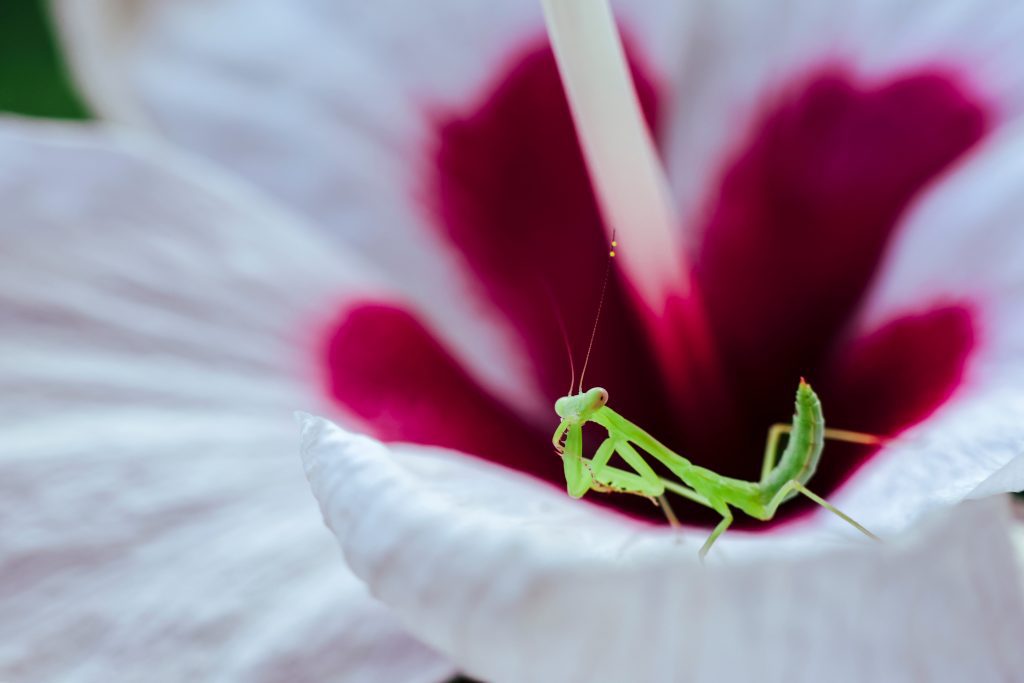The Best Beneficial Insects for a Healthy Fall Garden
It’s that time of year again! As the summer heat starts to cool down, fall garden preparation begins.
A garden is a unique micro ecosystem. The soil, the sunlight, and the moisture all affect the survival of delicate plants that are trying to take root. There’s one other thing we can’t forget— our insect friends.
Novice gardeners sometimes think they must eradicate all insects for the sake of their gardens. In reality, only around a tenth of insects are harmful. This quick guide explores the insects you want to keep in your garden this fall.
What Kinds of Insects Benefit Your Fall Garden?
Of the many insects in your backyard, a surprising number do more good than harm, although many people believe it to be the other way around. Three types of insects can benefit your fall garden:
- Parasitoids. Bordering on parasitic and predatory, insects of the parasitoid variety deposit their eggs in or on host insects, and their hosts are often common garden pests. Upon hatching from their eggs, parasitoid insect larvae gang up on their host insect, eating it alive until it is gone. Parasitoids that insert their eggs inside the body or eggs of a host insect are endoparasitoids, while those that lay their eggs on or around their hosts are ectoparasitoids.
- Pollinators. These good bugs are vital to our ecosystem for many reasons, most importantly, their ability to help plants reproduce.
- Predators. These insects eliminate harmful pests by hunting down and eating them.
Flying Parasitoids: Certain Wasp and Fly Species
Flying endo- and ectoparasitoid insects, like some species of wasps and flies, are friends to your garden; they’re like mini exterminators that wipe out many garden-harming pests. Plus, some species are passive or active pollinators.
Here are a few types of beneficial bugs in this category that can be great garden guardians—without hurting people or pets:
- Trichogramma wasps save the day by laying their eggs inside the eggs of over 200 pests, preventing them from hatching and ruining your garden.
- Braconid wasps place their eggs on the backs of caterpillars like tomato hornworms. The wasp larvae will kill the pest, allowing your tomato garden to thrive. These guys are also pollinators.
- The tachinid fly looks like any ordinary fly, but serves a far larger purpose than the ones we swat away. When tachinid flies’ eggs hatch into wriggling maggots inside their host, they feast on the host from the inside as they grow, until the host is dead and gone. Keeping these flies around eliminates corn borers, Mexican bean beetles, green stinkbugs, and more.
Bumblebees
As the best-known pollinators, bumblebees are vital to your garden, no matter the time of year. Bumblebees encourage seed production and influence the health of your garden’s ecosystem in the springtime.
Planting aster flowers can keep bumblebees around a little longer this fall. Several aster varieties bloom in the fall and into the winter. Small white asters and frost aster are two excellent options because they are late bloomers that continue to produce flowers into the winter season.
Praying Mantids
Praying mantids (such as praying mantises, a mantid variety) are among the fiercest predators in the garden. They hunt, kill, and chow down on unwanted pests in your garden like flies, moths, and beetles. Their alpha energy also makes them a predator to their own kind. No insect is safe in the presence of a praying mantid—not even a mantid.
How to Invite Beneficial Bugs to Your Garden
All organisms rely on food, water, and shelter. Meeting their needs and providing the sources they need to grow and thrive is the key to creating an ecosystem full of beneficial insects.
Plant diversity is key to attracting these insects to your garden. Early-blooming plants, like alyssum, or biennials like parsley, onions, or carrots, will extend a warm invite by Spring, so begin planting them in the fall. Other excellent choices are flowering herbs like lavender, dill, mint, sage, and compound blossoms like yarrow or Queen Anne’s lace.
Knowing what you want in your fall garden will help you determine which plants will attract beneficial insects and deter the bad ones.
Yard Pest Control Matters
Yard pest control is undoubtedly essential; the health of your fall garden depends on it! We work with beneficial insects to create a natural balance between nature’s work and pest control services that keep your garden healthy and thriving.
At Vulcan Termite & Pest Control Inc., our pest professionals create custom treatment plans to ensure the best results for your garden. To get a free inspection and complimentary quote on any of our technicians’ services, contact us today at (205) 663-4200 or here on our site.


